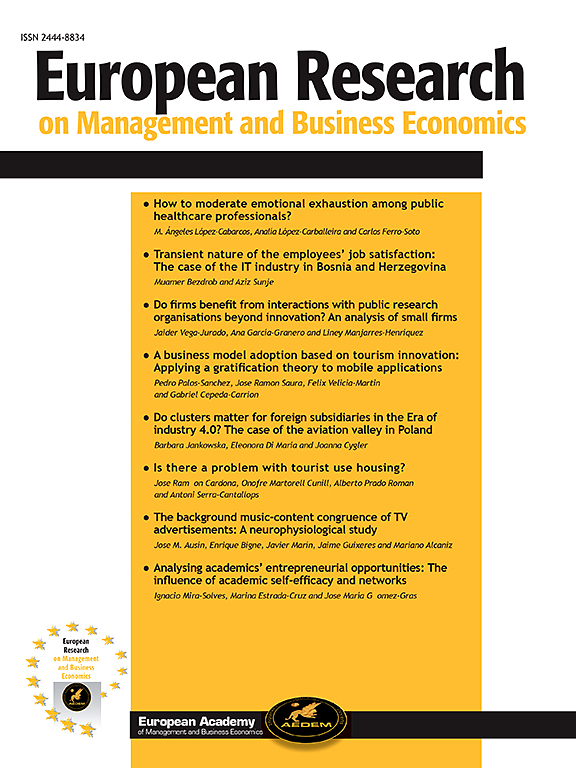道德领导对个人学习和不学习的影响:通过情感承诺进行调解
IF 6.4
3区 管理学
Q1 BUSINESS
European Research on Management and Business Economics
Pub Date : 2024-09-01
DOI:10.1016/j.iedeen.2024.100258
引用次数: 0
摘要
本研究探讨了道德领导力对个人不学习、探索性学习和利用性学习的影响。我们检验了情感性督导承诺在道德领导与这三类学习之间的中介作用。我们使用了结构方程模型和引导法来检验这些相互关系,这些数据基于从巴基斯坦五家牙科和外科制造公司的 508 名员工处收集的三波调查数据。结果表明,道德领导力对非学习性学习、探索性学习和开发性学习有积极影响。我们还发现,情感承诺在很大程度上介导了道德领导对非学习性学习和探索性学习的影响,但没有介导道德领导对探索性学习的影响。除了理论意义之外,本研究还具有现实意义,特别是对于那些关注员工的破坏性行为和做法、希望提高员工技能和知识水平以及组织知识基础的管理者而言。本文章由计算机程序翻译,如有差异,请以英文原文为准。
Effects of ethical leadership on individual learning and unlearning: Mediation through affective commitment
This study examines the effects of ethical leadership on individual unlearning, explorative learning, and exploitative learning. We test the mediating role of affective supervisory commitment in the relationship between ethical leadership and these three types of learning. Structural equation modeling and bootstrapping are used to test these interrelationships based on three-wave survey data collected from 508 employees at five dental and surgical manufacturing firms in Pakistan. The results show that ethical leadership positively affects unlearned, explorative, and exploitative learning. We also find that affective commitment significantly mediates the effects of ethical leadership on unlearning and explorative learning but not the effect of ethical leadership on exploitative learning. In addition to the theoretical implications, this study has practical implications, especially for managers who are concerned about employees’ destructive behaviors and practices and who want to enhance employees’ skills and knowledge, as well as their organizations’ knowledge base.
求助全文
通过发布文献求助,成功后即可免费获取论文全文。
去求助
来源期刊
CiteScore
11.70
自引率
3.40%
发文量
30
审稿时长
50 weeks
期刊介绍:
European Research on Management and Business Economics (ERMBE) was born in 1995 as Investigaciones Europeas de Dirección y Economía de la Empresa (IEDEE). The journal is published by the European Academy of Management and Business Economics (AEDEM) under this new title since 2016, it was indexed in SCOPUS in 2012 and in Thomson Reuters Emerging Sources Citation Index in 2015. From the beginning, the aim of the Journal is to foster academic research by publishing original research articles that meet the highest analytical standards, and provide new insights that contribute and spread the business management knowledge

 求助内容:
求助内容: 应助结果提醒方式:
应助结果提醒方式:


